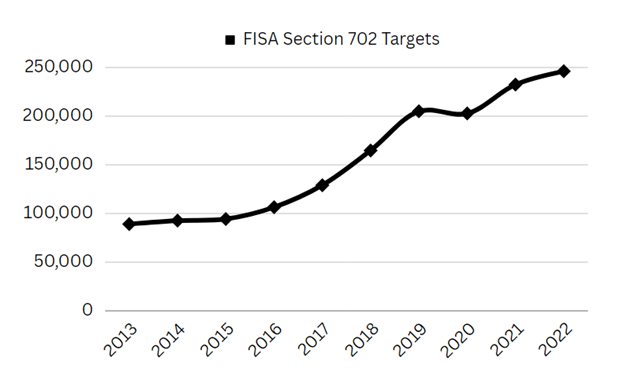Yes, a Snail’s Pace… but a Pace
By Jeffrey Sterling, Public Square Amplified
The advent of the digital age has been a renaissance regarding our access to information and communication. Having a digital presence is an essential element of this newfound connectivity, but that need for a digital presence also exposes us to mass surveillance. Thanks to laws like Section 702 of the Foreign Intelligence Surveillance Act (FISA), the government is empowered to conduct mass surveillance with minimal safeguards to protect our privacy and rights.

Because of this power, digital mass surveillance is trampling our very democracy.
As noted by the American Civil Liberties Union (ACLU), “Although the law allows surveillance of foreigners abroad for ‘foreign intelligence’ purposes, the FBI routinely exploits this rich source of our information by searching those databases to find and examine the communications of individual Americans for use in domestic investigations.”

The implementation of mass surveillance and the laws and fear used to justify it have no place in a democracy. The potential for the digital age to strengthen democracy is open for debate, but the evidence that governmental institutions are leveraging the digital sphere for anti-democratic mass surveillance purposes is irrefutable.
Recent Posts
‘Unconstitutional. Unethical. Authoritarian.’ ICE Bars Millions Of Immigrants From Bond Hearings
July 18, 2025
Take Action Now One watchdog said the new policy “seems like a blatant attempt to stop them from exercising their right to due process.”……
Americans Are Not Nearly Alarmed Enough About Climate Change
July 18, 2025
Take Action Now Americans still don’t comprehend how imminent, dangerous, and far-reaching the threat is—and journalists are partly to blame.By…
The IRS Is Building A Vast System To Share Millions Of Taxpayers’ Data With ICE
July 17, 2025
Take Action Now ProPublica has obtained the blueprint for the Trump administration’s unprecedented plan to turn over IRS records to Homeland Security…
Israel’s Sudden Assault On Syria Is Unchecked Aggression
July 17, 2025
Take Action Now Jerusalem is bombing Damascus and threatening al-Sharaa’s rule, while Washington was hoping to help the nascent government on…




